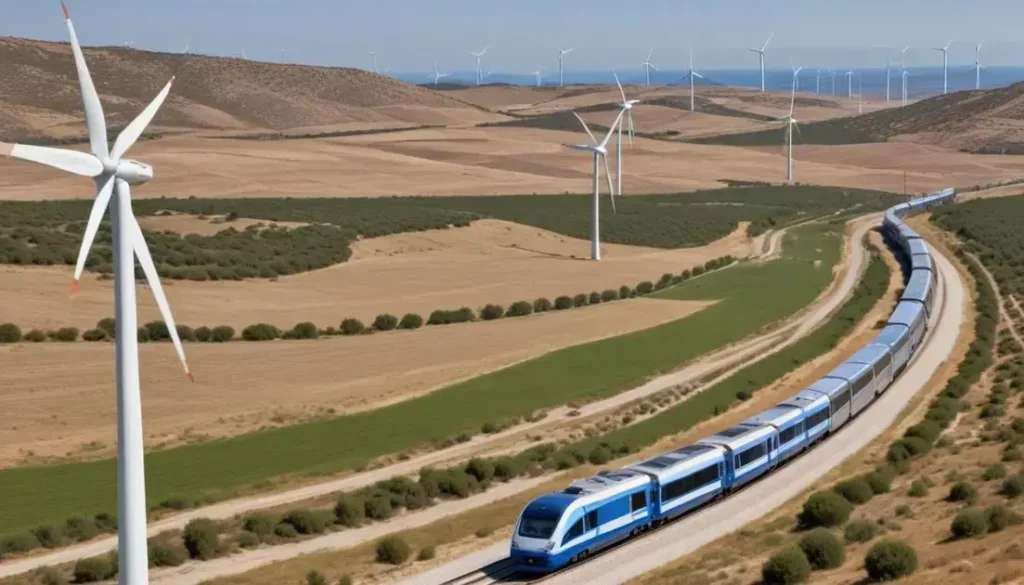Corporate decarbonisation involves reducing carbon emissions through strategies like adopting renewable energy and implementing carbon capture technologies, which enhance sustainability and compliance while improving brand reputation and operational efficiency.
In the realm of decarbonisation, the partnership between SAP and Climeworks marks a significant milestone in corporate sustainability. Have you considered how this could affect UK businesses?
Introduction to the SAP and Climeworks partnership
The partnership between SAP and Climeworks signifies a crucial step towards enhancing corporate sustainability. By leveraging SAP’s cutting-edge cloud technologies, Climeworks can efficiently manage their carbon removal operations. This collaboration not only streamlines processes but also fosters innovation in carbon capture techniques.
Carbon Removal Credits play a vital role in this partnership. Climeworks projects aim to pull CO2 from the atmosphere and convert it into a marketable product. Companies can invest in these credits to offset their own emissions, making progress towards their sustainability goals more achievable.
Moreover, this initiative aligns with the broader trend of businesses seeking to improve their environmental impact. With the UK government urging companies to adopt greener practices, the SAP and Climeworks alliance presents a valuable opportunity. UK businesses can benefit from these advancements by implementing robust carbon management strategies.
As the focus on sustainability grows, understanding the implications of such partnerships becomes essential. Firms looking to adopt these practices can gain a competitive edge in the marketplace. The collaboration between technology and carbon removal is set to reshape how businesses approach their environmental responsibilities.
Overview of carbon removal credits
Carbon removal credits are essential instruments in the fight against climate change. They represent a measurable quantity of carbon dioxide that has been captured from the atmosphere and stored or reused. This system incentivises companies to take significant actions in reducing their carbon footprints.
Each credit typically corresponds to one tonne of CO2 removed, creating a transparent method for businesses to offset their emissions. The process encourages investment in innovative technologies aimed at tackling atmospheric carbon levels effectively. Many organisations engage in purchasing these credits to demonstrate their commitment to sustainability.
The emergence of carbon markets has broadened the financial landscape for engaging in climate action. Businesses can buy or sell credits, depending on their carbon output, driving a competitive approach to emission reductions. This market structure not only promotes accountability but also fosters collaboration between companies and carbon removal project developers.
As regulations tighten and public awareness grows, the importance of understanding carbon removal credits increases. Companies that actively incorporate these credits into their sustainability agendas are positioned to benefit strategically. In this evolving landscape, carbon removal credits represent both a responsibility and an opportunity for firms aiming for a greener future.
Benefits of SAP’s cloud solutions for Climeworks
SAP’s cloud solutions provide a range of benefits that significantly enhance the operational efficiency of Climeworks. By utilising these cutting-edge technologies, Climeworks can streamline carbon capture processes and improve data management across its projects. The cloud infrastructure facilitates real-time analysis, allowing for quicker decision-making and optimised operations.
One of the primary advantages is the ability to scale efficiently. Climeworks can expand its carbon removal initiatives seamlessly, without the constraints of traditional IT systems. This flexibility is essential in responding to the evolving demands of climate action.
Furthermore, SAP’s secure cloud platform enables robust data storage and sharing, ensuring that vital information is accessible and protected. This is particularly important when managing sensitive data related to carbon credits and environmental impact assessments.
Additionally, the integration of advanced analytics tools within the SAP environment allows Climeworks to forecast trends and measure outcomes effectively. This capability supports transparency and enhances stakeholder engagement, as detailed reports can be generated to highlight the environmental benefits achieved.
Overall, SAP’s cloud solutions empower Climeworks to push the boundaries of carbon capture innovation while maintaining an unwavering commitment to sustainability. This partnership exemplifies how technology can drive significant advancements in climate action.
Diverse methods of carbon removal
Diverse methods of carbon removal have emerged as critical components in the fight against climate change. These methods vary widely in technology and approach, each contributing uniquely to reducing atmospheric carbon dioxide levels.
One popular method is direct air capture (DAC), which involves using large fans to draw in air and chemical processes to extract CO2. This captured carbon can either be stored underground or reused in manufacturing processes.
Another significant strategy is biological carbon sequestration, which utilises natural processes. For instance, forests, wetlands, and soil management practices can enhance the ability of these ecosystems to absorb and store carbon. Planting trees and restoring degraded land are practical examples of this method.
Additionally, ocean-based approaches, such as ocean alkalinity enhancement and seaweed cultivation, are being explored. These techniques aim to increase the capacity of the ocean to absorb carbon, thus playing a pivotal role in global carbon budgets.
Furthermore, innovations in carbon capture and storage (CCS) technology are being integrated into industrial processes, allowing businesses to capture emissions before they enter the atmosphere. Each of these diverse methods contributes to an holistic approach to carbon management, crucial for achieving net-zero targets.
Strategic investment in sustainability
Strategic investment in sustainability is crucial for businesses aiming to thrive in a rapidly changing environment. Companies are increasingly recognising the need to integrate sustainable practices into their core strategies. This shift not only enhances brand reputation but also drives long-term profitability.
Investing in sustainable technologies can lead to significant operational efficiencies. For instance, businesses adopting renewable energy sources lower their reliance on fossil fuels, reducing costs in the long run. Moreover, such investments can yield tax incentives and grants, making sustainability not just an ethical choice but also a financially sound one.
Additionally, the market demand for environmentally friendly products is growing. By focusing on sustainability, companies can capture new customer segments that prioritise eco-consciousness. This trend is particularly evident among younger consumers, who are more likely to support brands with strong sustainability commitments.
Collaboration with sustainability-focused organisations can further amplify these efforts. By partnering with innovative firms and leveraging their expertise, businesses can enhance their sustainability initiatives, driving greater impact and visibility. Furthermore, strategic investments in sustainability can mitigate risks associated with environmental regulations, ensuring compliance and protecting against potential liabilities.
Ultimately, embracing sustainability as a core business strategy not only positions companies as industry leaders but also contributes to a healthier planet for future generations.
How the partnership improves climate resilience
The partnership between SAP and Climeworks plays a pivotal role in enhancing climate resilience for businesses and ecosystems alike. By leveraging advanced technologies and innovative carbon capture methods, this collaboration addresses the urgent need for sustainable solutions in the face of climate change.
By improving the efficiency of carbon removal processes, the partnership allows for a more significant reduction in atmospheric CO2 levels. This directly contributes to climate stability and helps mitigate extreme weather events, benefiting both the environment and communities at risk.
Additionally, integrating SAP’s cloud solutions streamlines data management and predictive analytics for Climeworks. This synergy enables better forecasting and monitoring of carbon capture operations, leading to more effective project outcomes. Companies can rely on real-time data to adjust their strategies, thus improving their resilience against potential climate-related disruptions.
Moreover, the collaboration fosters knowledge sharing and innovation in sustainability practices. By uniting their expertise, SAP and Climeworks provide businesses with the tools necessary to implement effective climate strategies. This proactive approach not only aids in compliance with environmental regulations but also enhances brand reputation in a market that increasingly values sustainability.
Through this partnership, organisations improve their readiness for climate challenges while contributing positively to global environmental goals, thus reinforcing the importance of strategic alliances in the fight against climate change.
Implications for UK businesses
The partnership between SAP and Climeworks presents significant implications for UK businesses aiming to enhance their sustainability practices. As corporate responsibility becomes increasingly important, firms in the UK are under pressure to innovate and reduce their carbon footprints. This collaboration offers a model for integrating advanced carbon capture technologies into their operations.
One key implication is the potential for improved compliance with upcoming environmental regulations. As the UK government places stricter limits on emissions, utilising solutions from this partnership can help businesses stay ahead of regulatory requirements. By adopting carbon removal strategies, firms can reduce the risk of penalties associated with non-compliance.
Moreover, by investing in sustainability, UK businesses can strengthen their market position. As consumers increasingly favour companies with strong sustainability credentials, leveraging innovative carbon management solutions can enhance brand loyalty and attract new customers. This trend is particularly prevalent among younger demographics who prioritise environmental responsibility.
Additionally, adopting these technologies can lead to operational efficiencies. SAP’s cloud solutions enable enhanced data analysis and management, allowing businesses to optimise processes and reduce waste. This can lead to significant cost savings, making sustainability not just an ethical choice, but also a financially advantageous one.
Overall, the SAP and Climeworks partnership provides a pathway for UK businesses to integrate sustainability into their core strategies, ensuring long-term success.
Future of corporate decarbonisation
The future of corporate decarbonisation is shaping up to be one of rapid innovation and strategic realignment. As businesses across the globe respond to the urgent calls for climate action, decarbonisation will increasingly become a central element of their operations. Firms are recognising that reducing carbon emissions is not only a regulatory necessity but also a competitive advantage.
Innovative technologies, such as carbon capture and storage (CCS), are expected to play a pivotal role. These technologies allow companies to capture emissions at the source and store them safely, effectively eliminating a significant portion of greenhouse gases released into the atmosphere. Furthermore, direct air capture methods are emerging as viable solutions to directly remove CO2 from the environment.
In addition, the shift towards renewable energy sources will continue to accelerate. Companies that invest in solar, wind, and other renewable options will not only reduce their carbon footprints but also stabilise their energy costs in the long term. This trend aligns with the increasing investor and consumer demand for sustainability.
Furthermore, corporate sustainability reporting will become more standardised and transparent. Stakeholders are seeking clarity on corporate commitments and progress regarding decarbonisation efforts. This emphasis on accountability will push firms to set ambitious targets and adopt best practices.
The future of corporate decarbonisation holds the potential for transformative changes that not only benefit the environment but also enhance business resilience and growth.
Conclusion and call to action
The energy transition is a pressing reality for businesses globally, and corporate decarbonisation is at the forefront of this movement. As companies face increasing pressure from consumers and regulators, embracing sustainable practices is no longer optional; it is essential for long-term success.
Adopting innovative technologies like carbon capture and renewable energy solutions is crucial. By making these changes, businesses not only contribute positively to the environment but also position themselves competitively in an increasingly eco-conscious market.
Additionally, engaging stakeholders in sustainability efforts can create a culture of accountability and drive further innovation. Employees, customers, and investors are more likely to support companies that demonstrate a genuine commitment to reducing their carbon footprint.
It is imperative for UK businesses to begin implementing these strategies now. As regulations tighten and consumer expectations evolve, those who delay action risk falling behind. Companies should actively seek partnerships, invest in training, and prioritise sustainability in their strategic planning.
By taking a proactive approach to decarbonisation, businesses can not only ensure compliance with forthcoming regulations but also foster resilience in the face of future challenges. It’s time for firms to commit to climate action and make sustainability a cornerstone of their operations.
The Path Forward for Corporate Decarbonisation
As we have explored, corporate decarbonisation is no longer just a trend; it is a vital practice for businesses aiming for long-term success. By investing in sustainable technologies and processes, companies can significantly reduce their carbon footprints.
Clear strategies, such as adopting renewable energy and implementing carbon capture methods, will not only help the environment but also foster a positive brand image. Stakeholder engagement is crucial in this journey, as it encourages accountability and drives innovation.
It is essential for companies to begin their decarbonisation efforts now rather than later. With regulations becoming stricter and consumer expectations rising, taking action today will result in a competitive edge.
In conclusion, businesses must embrace this challenge and view it as an opportunity to lead in their industries. Commitment to sustainability is not just good for the planet; it’s good for business.
Frequently Asked Questions
What is corporate decarbonisation?
Corporate decarbonisation refers to the process by which companies reduce their carbon emissions to combat climate change and improve sustainability.
Why is decarbonisation important for businesses?
Decarbonisation is essential for compliance with regulations, improving brand reputation, and meeting consumer expectations for sustainability.
How can businesses start their decarbonisation journey?
Businesses can start by assessing their current carbon footprint, setting clear sustainability goals, and investing in renewable energy and carbon capture technologies.
What role does technology play in decarbonisation?
Technology enables efficient carbon capture, renewable energy adoption, and real-time data analysis, helping companies track and reduce their emissions more effectively.
What can stakeholders do to support decarbonisation efforts?
Stakeholders can provide accountability, share knowledge, and drive innovation by actively engaging in sustainability initiatives and supporting corporate commitments to reduce emissions.
What are the long-term benefits of investing in sustainability?
Investing in sustainability can lead to cost savings, enhanced brand loyalty, increased competitiveness, and a positive impact on the environment.


